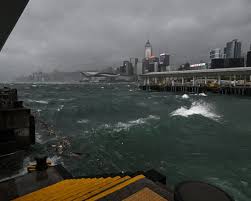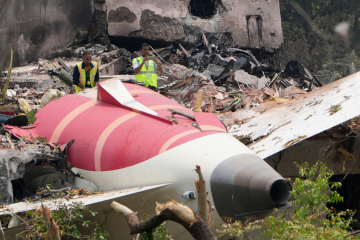Typhoon Wipha Impacts Hong Kong: A Summary of Events

Introduction
Typhoon Wipha made landfall in Hong Kong on 25th October 2023, bringing heavy rainfall and strong winds to the region. The occurrence of typhoons is not uncommon in this part of the world, but the intensity and disruption caused by Wipha highlight ongoing concerns about climate change and the vulnerability of densely populated urban areas. As the storm approached, local authorities were prompted to take immediate action, ensuring public safety ahead of the extreme weather conditions.
Events and Impact
Typhoon Wipha reached peak intensity just before making contact with Hong Kong, with wind gusts exceeding 80 mph. The Hong Kong Observatory issued a No. 8 gale warning, signalling serious maritime and aviation disruptions. Public transportation, including buses and ferries, was suspended, and schools were closed in advance of the storm. Reports indicate over 100,000 households experienced temporary power outages due to fallen trees and debris.
Emergency services reported mobilising to clear roads, assist stranded motorists, and ensure the safety of vulnerable residents. Despite the challenges presented by the storm, prompt measures helped to minimise injuries and reported accidents remained low. However, authorities advised residents to stay indoors and monitor updates from local news networks to ensure personal safety.
Conclusion
As the storm passed, the clean-up operations commenced swiftly, with teams deployed across the city. The aftermath of Typhoon Wipha serves as a reminder of the unpredictable nature of weather phenomena, exacerbated by climate change. Meteorologists expect an increase in typhoon activity in the coming seasons, leading to heightened awareness and potentially more assertive measures from Hong Kong’s disaster preparedness agencies.
Residents and businesses are encouraged to review their safety protocols and prepare for future weather events, particularly as Hong Kong continues to face the challenges of tropical storms. While the immediate impact of Wipha is starting to subside, the lessons learnt may shape the region’s approach to resilience and disaster management in the face of an uncertain climate future.









